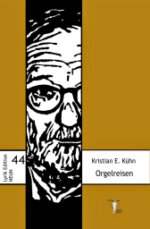Lord Byron: Churchill's Grave
CHURCHILL’S GRAVE
A FACT LITERALLY RENDERED.
I stood beside the grave of him who blazed
The Comet of a season, and I saw
The humblest of all sepulchres, and grazed
With not the less of sorrow and of awe
On that neglected Turf and quiet stone
With no name clearer than the names unknown,
Which lay unread around it; and I asked
The Gardener of that ground, why it might be
That for this plant strangers his memory tasked,
Through the thick deaths of half a century;
And thus he answered––“ Well, I do not know
Why frequent travellers turn to pilgrims so;
He died before my day of Sextonship,
And I had not the digging of this grave.”
And is this all ? I thought,––and do we rip
The veil of Immortality, and crave
I know not what of honour and of light
Through unborn ages, to endure this blight?
So soon and so successless ? As I said,
The Architect of all on which we tread,
For earth is but a tombstone, did essay
To extricate remembrance from the clay,
Whose minglings might confuse a Newton’s thought,
Were it not that all life must end in one,
Of which we are but dreamers ;––as he caught
As ’twere the twilight of a former Sun,
Thus spoke he,––“ I believe the man of whom
You wot, who lies in this selected tomb,
Was a most famous writer in his day,
And therefore travellers step from out their way 30
To pay him honour,––and myself whate’er
Your honour pleases:”––then most pleased I shook
from out my pocket’s avaricious nook
Some certain coins of silver, which as ’twere
Perforce I gave this man, thought I could spare
So much but inconveniently:––Ye smile,
I see ye, ye profane ones! all the while,
Because my homely phrase the truth would tell.
You are the fools, not I––for I did dwell
With a deep thought, and with a softened eye,
On that old Sexton’s natural homily, Kanzelrede
In which there was Obscurity and Fame––
The Glory and the Nothing of a Name.
Diodati, 1816
CHURCHILLS GRAB
TATSACHE, NÜCHTERN BERICHTET
Ich stand am Grabe dessen, der, Komet
einer Saison, verglüht war, und ich sah
ein Grab, so unscheinbar, wie es nur geht,
und streifte gleichwohl voller Ehrfurcht da
durchs hohe Gras, der Stein stand still und stumm,
nur unbekannte Namen ringsherum,
und ungelesen, klar; da fragte ich
den Gärtner nach den Fremden: wer bewundert,
wer pflegt sein Angedenken eigentlich?
sein Tod sei lange her, ein halb Jahrhundert;
und er erwiderte: „Was weiß denn ich?
was kümmern diese Pilgerreisen mich?
er starb, bevor ich meinen Dienst begann;
ich hatte dieses Grab nicht auszuheben.“
Und das ist alles? dacht ich,––rührn wir an
den Schleier der Unsterblichkeit, und streben
nach Ehre und Erleuchtung hier auf Erden
und dulden letztlich das Zerfressenwerden?
So bald? so folgenlos? Wie ich mir sagte,
der Architekt, auf dem wir fußen, wagte
einen Versuch –– denn Erde bleibt ein Grab––,
gewann dem Lehm ein Weiterleben ab,
das Newton selbst verwirrt hätt; ists nicht so,
daß alles Leben enden muß und wir
nur weiterträumen? –– sagt er irgendwo,
das Restlicht einer Sonne sei das hier––
Da sprach er: „Dieser Mann war, wie Ihr wißt
berühmt, ein Dichter, und sein Grabstein ist
begehrt wie er es war an seinem Tag,
was Reisenden doch Grund genug sein mag
zu einem Umweg, ihn zu ehren––ich
tu’s auch, wenns Euer Ehren so gefällt“––;
da zog ich aus der Tasche etwas Geld,
einige Silbermünzen fanden sich,
die gab ich ihm, dacht, soviel könne ich
erübrigen:––Ihr lächelt! Lächelt nicht,
Ihr Lästerer! ich sag die Wahrheit schlicht
und ungeschönt. In Wirklichkeit seid Ihr
die Narren und nicht ich––ich wohnte hier
in dieser Totenrede dieses Alten,
tiefer, natürlicher, als je gehalten,
in der das Dunkel und der Ruhm vorkamen––
die Glorie und das Nichts in einem Namen.
Günter Plessow, Juli 2014
Charles Churchill (1731–1764), beigesetzt in Dover auf dem Friedhof der zerstörten Kirche St. Martin-le-Grand.
Auf dem Grabstein steht heute (1816 war er unbeschriftet):
1764.
Here lie the remains of the celebrated
C. CHURCHILL.
‘Life to the last enjoy’d, here Churchill lies.’
Byron notierte auf dem Original: “The following poem (as most that I have endeavoured to write) is founded on a fact; and this detail is an attempt at a serious imitation of the style of a great poet––its beauties and its defects : I say the style: for the thoughts I claim as my own. In this, if there be anything ridiculous, let it be attributed to me, at least as much as to Mr. Wordsworth: of whom there can exist few greater admirers than myself. I have blended what I would deem to be the beauties as well as the defects of his style; and it ought to be remembered, that, in such things, whether there be praise or dispraise, there is always what is called a compliment, however unintentional.”


